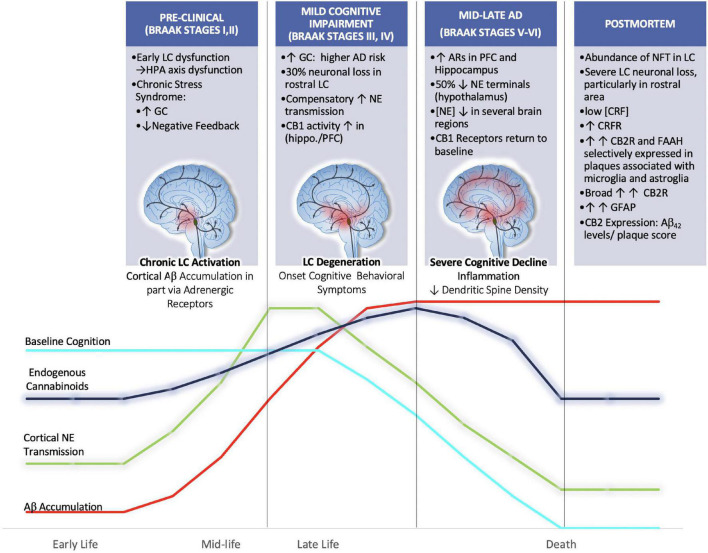FIGURE 5.
We hypothesize that aberrant activation of LC neurons during chronic stress in mid-late stages of life may render the brain more vulnerable to Aβ accumulation and senile plaque deposition. Further we hypothesize that endogenous cannabinoid compensation occurs in response to LC-NE system dysregulation preceding and after the onset of LC neurodegeneration. Clinical postmortem data show that between the prodromal (preclinical; Braak Stages I,II) and mild cognitive impairment (Braak stages III-IV) there is a 30% decrease in rostral LC volume (Theofilas et al., 2017). Remaining LC neurons compensate for neuronal loss by increasing NE production and transmission (Szot et al., 2006). Human AD brains in Braak Stages III, IV show increased CB1 activity in hippocampal and inner frontal cortical layers (Manuel et al., 2014). By the time disease progression reaches Braak stages V, VI there is human postmortem evidence for the upregulation of ARs in the PFC and hippocampus, thus suggesting that LC degeneration is causing decreases in NE transmission at this point (Kalaria et al., 1989). The loss of NE tone is supported by studies that have reported decreased concentrations of NE in the hypothalamus, cingulate, putamen and raphe nuclei (Mann et al., 1980; Arai et al., 1984). Further, during Braak stages V, VI, it has been shown that CB1r levels are decreased from their elevated state, returning to baseline levels (Manuel et al., 2014).

